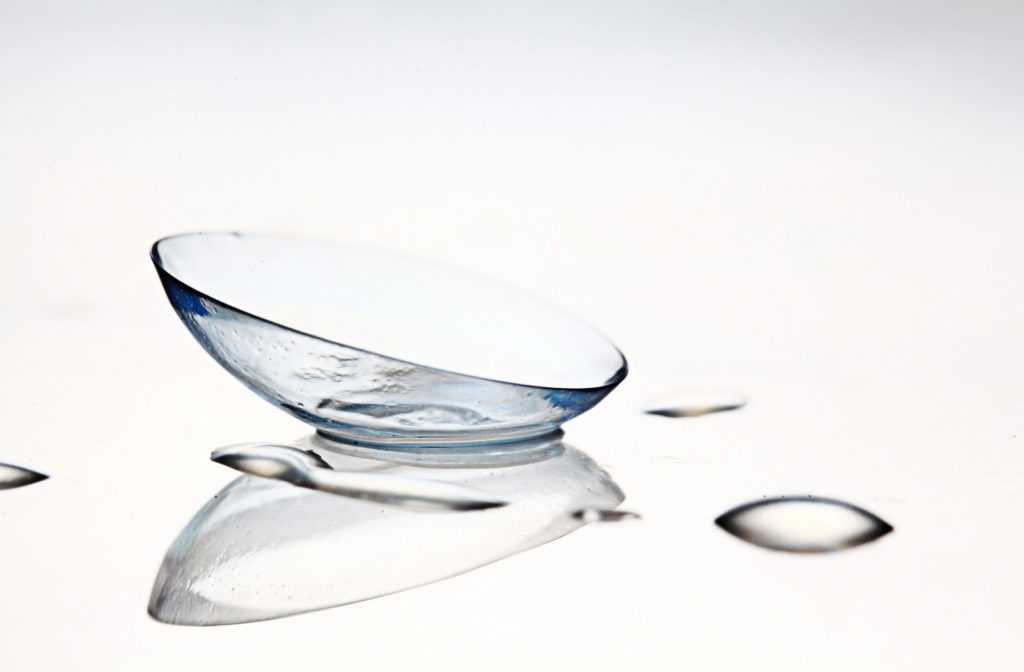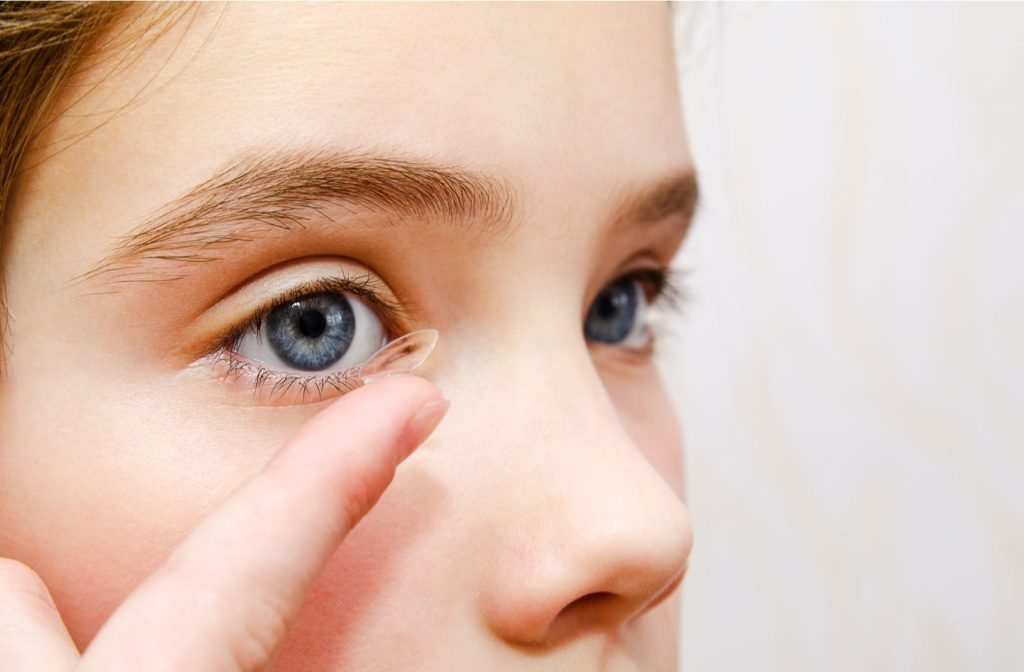Glasses are usually the most common choice if your child needs corrective eyewear, but what about contact lenses? While contact lenses are a great alternative to glasses, can children wear them?
Continue reading to learn more about contact lenses, including if children can wear them, what age they should start, and what contacts are best for your child’s needs.
Can My Child Wear Contact Lenses?
Approximately 45 million Americans wear contact lenses, and 8% are under 18 years old. Anyone can wear contact lenses, but your child will require help if they’re younger. Your child may be able to use their contacts more independently if they are around pre-teen age.
You play an important role in your child’s safety as a parent. You should consider your child’s maturity level, motivation to wear contacts, and personal hygiene when deciding if contact lenses are a good idea.
What Age Should They Start?
It’s common to assume children can’t benefit from contact lenses until they become teenagers, but this isn’t true. The Food and Drug Administration (FDA) has previously approved contact lenses for children as young as 8.
Speaking with your optometrist can help determine if your child is old enough for contact lenses. However, the most important question is if they’re ready themselves.
Contact lenses require more regular care than glasses. Eye infections are a risk if your child doesn’t care for their contact lenses properly.
If you don’t think your child can handle this responsibility yet, they may need to wait a few years before trying contacts. Speak with your eye doctor if you’re on the fence about contact lenses for your child. They can address your questions or concerns and explain the risks and benefits of wearing contact lenses.
Why Wear Contact Lenses?
It may seem easier to let your child continue to wear glasses until they’re older, but there are several benefits for children wearing contact lenses. Sometimes corrective eyewear is about more than just seeing better—contact lenses can help your child see without affecting their natural appearance. Glasses aren’t for everyone, so your child may not like how they feel when wearing them.
If they play sports, glasses can get in the way or break during their game. Contacts provide clear vision without having to worry about broken frames or lenses. Even without the risk of broken glasses, some kids feel better when wearing contact lenses.
Compared to glasses, children who switched to contact lenses felt better in their ability to see, appearance, participation in sports, and satisfaction with vision correction.
What Contact Lenses Are Best for Children?
The most common contact lenses include soft contacts, rigid gas permeable lenses, and disposable lenses. Your optometrist can help determine the best contact lenses for your child’s needs and explain the benefits of each type of lens.
- Soft contact lenses: Soft contacts are flexible, allowing oxygen to pass through to the cornea—they are easier to adjust to & new contact lens wearers can benefit from these lenses
- Rigid gas permeable lenses (RGP): Rigid gas permeable lenses provide crisp, clear vision with easier handling—they are durable lenses, but some people find them more uncomfortable to wear
- Daily disposable lenses: Daily disposable lenses are soft contacts you throw away each day—they don’t require any care or maintenance because you put in a new pair of lenses every day

Contact Lenses Aren’t Maintenance-Free
It’s important to remember that contact lenses aren’t a grab-and-go type of eyewear. They require care and regular cleaning to avoid potential complications. While your eye doctor will provide instruction on caring for your child’s contact lenses, you need to help your child safely use their lenses.
Consider the following safety tips when it comes to contact lenses:
- Your child should wash their hands before handling or cleaning their lenses & dry their hands on a clean, lint-free towel
- Rub, rinse, clean, & disinfect contact lenses as directed & only use products recommended by your optometrist
- Never expose contact lenses to saliva or water
- Don’t let your child wear their contact lenses longer than prescribed to avoid potential complications
- Don’t allow your child to sleep with their lenses in unless they are designed for this purpose
- Your child should avoid applying any makeup until after they insert their lenses & they should remove their lenses before taking off their makeup at night
- Never let your child put in contact lenses if their eyes are red
- Remove your child’s contacts if their eyes are red, irritated, itchy, or burning & call your optometrist
Is It Time to Try Contact Lenses?
Contact lenses have many benefits, but make sure your child is ready for them. Speaking with your eye doctor can help determine what lenses are best for your child, but you know them best. Consider if your child can handle this responsibility before making a final decision.
Contact your optometrist if you’re interested in contact lenses for your child.



